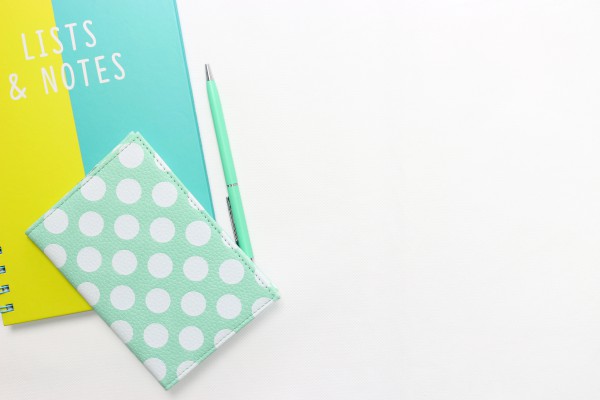初一英语期中下册重点
【#初一# 导语】学习英语需要有良好的心态,好的心态能让自己进步很多。另外,选择读英语的时间建议是早上,或者是心情舒畅放松的时候,不可压力过大。死记硬背是学习英语的途径,但不是途径。学习需要讲方法,而不是拼时间去学习。下面是®文档大全网为您整理的《初一英语期中下册重点》,仅供大家参考。
1.初一英语期中下册重点 篇一
词组,短语及其用法
1. want 想要
want sth 想要某物 He wants a book.
want to do sth 想要做某事 She wants to go out.
2. an actor
3.policeman ------policemen policewoman-----policewomen
4.wait(等待)--------waiter(侍者)
5. 名词所有格(请看以下例子,认真思考用法)
Tom’s 汤姆的 my father’s 我父亲的 the students’ 学生们的
Lucy and Lily’s room Lucy 和Lily的房间
Five minutes’ walk = five--minute walk 五分钟的路程
6. want to be......想成为......
7. work with sb /sth 与......打交道
8. give sb sth = give sth to sb 给某人某物
9. get sth from sb 从某人那里去回某物
10. in the day 在白天 at night 在夜晚
11. kind of + 有几分
12. thief ----- thieves 小偷
13. talk to sb 与某人谈话 talk with sb 与某人交谈(侧重与双方) talk about sth 谈论某事/某人
14. people 、clothes 没有单数形式
15. be busy doing sth 忙于做某事
Be busy with sth 忙于某事
16. go out 外出、出去
2.初一英语期中下册重点 篇二
Unit 1 Where’s your pen pal from?
一、词组
be from= come form 来自...
pen pal=pen friend 笔友
like and dislike 好恶;爱憎
live in….在...居住
speak English 讲英语
play sports 做体育运动
a little French 一些法语
go to the movies 去看电影
an action movie 一部动作片
on weekends 在周末
Excuse me 对不起,打扰
get to 到达、抵达
beginning of 在...开始的时候
at the end of 在...结束的时候
arrive at /
二、句型
(1)Where主 +be+主语+from?
主语+be+from+地点。
(2)Where do/does+主语+live?
主语+live/lives in…
(3)What language do/does +主语+speak?
主语+speak/speaks….
(4)主语+like/likes+doing…
三、日常交际用语
1-Where is your pen pal from?
-He’s from China.
2-Where does she live?
--She lives in Tokyo.
3-Does she speak English?
-Yes,she does/No,she dosen’t.
4-Is that your new pen pal?
-Yes,he is /No,he isn’t.
5-What language does she speak?
-She speaks English.
Unit 2 Where’s the post office
一、词组
post office 邮局
pay phone 投币式公用电话
next to 在...隔壁
across from 在...对面
in front of 在...前面
between…and… 在...和...之间
on a street 在街上
in the neighborhood 在附近
on the right/left 在右边/在左边
on one’s right/left 在某人的右边/左边
turn right/left 向右/左转
take a walk 散步
have fun 玩得开心
the way to …去...的路
take a taxi 打的/乘出租车
go down(along)…沿着...走
go through...穿过...
have a good trip 旅途愉快
二、句型
(1)Is there a bank near here?
Yes,there is .It’s on Centre Street.
No,there isn’t.
(2)Where’s the sumpermarket?
It’s next to the library.
(3)Bridge Street is a good place to have fun.
(4)I hope you have a good trip.
(5)If you are hungry,you can buy food in the restaurant.
(6)Talk a walk though the park..
(7)enjoy后接名词或动词-ing形式.
Do you enoy(=like) your work?
Do you enjoy(=like) living in the city?
三、日常交际用语
(1)Is there a ….?句型Eg:
-Excuse me.Is there a hotel in the neighborhood.
-Yes, there is. No.there isn’t
(2)Where is …?句型Eg:
-Where is the park,please?
-It’s behind the bank.(肯定回答)
-I’m sorry I don’t know. (否定回答)
(3)Which is the way to +地点? 句型。例如:
- Which is the way to the library.
(4)How can I get to +地点?句型。例如:
-How can I get to the restaurant?
(5)Can you tell me the way to +地点?句型.例
- Can you tell me the way to the post office?
(6)Let me tell you the way to my house.
(7)Just go straight and turn left.
3.初一英语期中下册重点 篇三
一、 be good for/ be good to/ be good at
be good for 表示"对……有好处",而be bad for表示"对……有害";be good to表示"对……友好",而be bad to表示"对……不好";be good at表示"擅长,在……方面做得好",而be bad at表示"在……方面做得不好"。
Doing eye exercises is good for your eyes.做眼保健操对你的眼睛有好处。
Eating too much is bad for you health.吃的太多对你的身体有害。
Miss Li is good to all of us.李 老师对我们所有的人都很友好。
The boss is bad to his workers.这个老板对他的工人不好。
Li Lei is good at drawing, but I'm bad at it.李雷擅长画画,但是我不擅长。
二、each/ every
each 和every都有"每一个"的意思,但含义和用法不相同。each从个体着眼,every从整体着眼。each 可用于两者或两者以上,every只用于三者或三者以上。
We each have a new book.
我们每人各有一本新书。
There are trees on each side of the street.
街的两旁有树。
He gets up early every morning.
每天早晨他都起得早。
each可以用作形容词、副词和代词;every只能用作形容词。
Each of them has his own duty.
他们各人有各人的'义务。
They each want to do something different.
他们每个人都想做不同的事情。